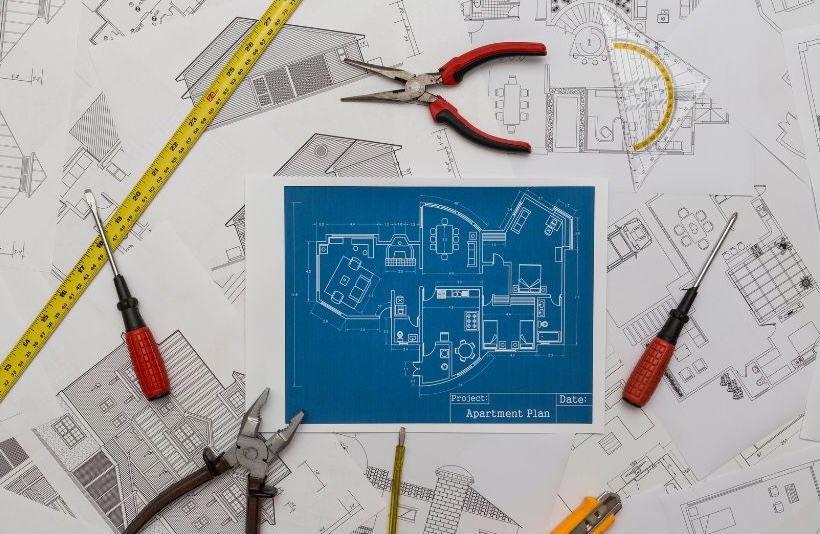When planning home improvements, one of the most critical decisions is finding a reliable contractor. A trustworthy contractor can ensure your project runs smoothly, stays within budget, and meets your expectations. However, with so many options available, selecting the right professional can be challenging. This guide will walk you through practical steps to identify a contractor you can trust.
1. Define Your Project Needs
Before searching for a contractor, be clear about what you want to achieve. Create a detailed list outlining your goals, materials, and budget. This will help you communicate your expectations clearly and receive accurate quotes. Knowing exactly what you want also prevents misunderstandings down the line.
- Have a clear vision of the project.
- Create a detailed plan with measurements and materials.
- Set a realistic budget.

2. Ask for Recommendations
Start your search by asking family, friends, neighbors, and colleagues if they’ve recently completed similar projects and if they recommend their contractor. Personal referrals are often more reliable than online reviews because you can see the completed work and hear about the experience firsthand.
- Get recommendations from people you trust.
- Visit completed projects to inspect the quality of work.
- Ask detailed questions about their experience with the contractor.

3. Do Thorough Research
Even if you get referrals, you should still do your homework. Search online for contractors in your area and read reviews from multiple sources. Look for contractors with consistently positive reviews and ratings, paying attention to comments about reliability, workmanship, and professionalism.
Additionally, check if the contractor is registered with reputable trade associations such as the National Association of Home Builders (NAHB) or the National Association of the Remodeling Industry (NARI). Membership in these organizations can be an indicator of a contractor’s commitment to quality and ethical practices.
- Look for online reviews across multiple platforms.
- Verify membership in professional organizations.
- Check for any past complaints or legal issues.

4. Verify Licensing and Insurance
One of the most important steps in finding a trustworthy contractor is verifying that they have the necessary licensing and insurance. Licensing requirements vary by state, so research what’s required in your area. A licensed contractor is more likely to have the expertise and training needed for your project.
Insurance is also crucial. Make sure your contractor has both general liability insurance and workers’ compensation coverage. This protects you from being held liable if an accident occurs on your property.
- Ensure the contractor is licensed for the specific work required.
- Verify that the contractor carries general liability insurance and workers’ compensation.
- Ask for copies of their licenses and insurance certificates.

5. Interview Multiple Contractors
Don’t settle for the first contractor you come across, even if they come highly recommended. Interview at least three contractors and ask them detailed questions about their experience, process, and pricing.
Some questions to ask include:
- How long have you been in business?
- Can you provide references from recent clients?
- What is your project timeline?
- How do you handle unexpected challenges or changes?
This step not only helps you compare contractors but also gives you an idea of how they communicate and handle questions. A contractor who is transparent and professional during the interview is more likely to be reliable throughout the project.
- Interview at least three contractors.
- Ask specific questions about their experience and process.
- Pay attention to their communication style and transparency.

6. Request and Compare Quotes
After narrowing down your options, ask each contractor to provide a detailed quote. Be wary of quotes that seem unusually low, as they might indicate that the contractor is cutting corners or underestimating the project’s scope.
Ensure that each quote includes:
- A breakdown of material costs.
- Labor costs.
- Estimated start and completion dates.
- Payment schedule.
Comparing quotes side by side helps you identify any red flags, such as significant price differences or vague details. Choose a contractor who provides a clear, comprehensive quote that aligns with your budget and expectations.
- Request detailed quotes from multiple contractors.
- Be cautious of unusually low estimates.
- Ensure the quote is clear and includes a project timeline.

7. Check References and Past Work
Before finalizing your decision, ask for references from previous clients. Contact these references and ask about their experience with the contractor, including communication, reliability, and quality of work.
Additionally, ask to see a portfolio of completed projects, especially those similar to yours. Visiting ongoing or recently completed projects can give you a better sense of the contractor’s work style and attention to detail.
- Speak with past clients about their experience.
- Review a portfolio of similar projects.
- Visit ongoing or recently completed work sites, if possible.

8. Review the Contract Carefully
Once you’ve chosen a contractor, review the contract in detail before signing. The contract should be thorough and include:
- Project description and scope of work.
- Detailed costs and payment schedule.
- Start and completion dates.
- Warranty information.
- Details on how changes or disputes will be handled.
Never agree to a verbal contract. Everything should be in writing to protect both parties. If anything in the contract is unclear, don’t hesitate to ask questions or seek legal advice before signing.
- Ensure the contract is detailed and comprehensive.
- Don’t agree to any verbal agreements—get everything in writing.
- Seek clarification on anything that’s unclear before signing.

9. Monitor the Project and Communicate Regularly
Even after selecting a trustworthy contractor, your role as a homeowner isn’t over. Stay involved in the project by regularly checking progress and communicating with the contractor. Regular updates help keep the project on track and ensure that any issues are addressed promptly.
Be respectful but firm in your communication. If you notice something that doesn’t align with your expectations, bring it up immediately to avoid misunderstandings later.
- Stay engaged throughout the project.
- Communicate regularly with your contractor.
- Address issues or concerns as soon as they arise.

10. Pay Based on Milestones, Not Upfront
A trustworthy contractor will not ask for the entire payment upfront. It’s standard practice to pay a deposit before work begins, followed by payments at agreed-upon milestones throughout the project. This ensures that the contractor stays committed and delivers quality work.
Avoid contractors who demand a large upfront payment or full payment before completing the project. These can be red flags indicating potential fraud or a lack of financial stability.
- Pay a reasonable deposit upfront, followed by milestone payments.
- Be cautious of contractors who ask for large upfront payments.
- Ensure payment terms are clearly outlined in the contract.

Conclusion
Finding a trustworthy contractor for home improvements takes time, research, and careful decision-making. By defining your project, seeking recommendations, verifying credentials, and thoroughly vetting each candidate, you can significantly reduce the risk of hiring someone unreliable. A well-chosen contractor will not only deliver a high-quality result but also make the entire process smoother and less stressful.
If you are looking to buy your dream home or sell your existing house in Sacramento feel free to get in touch with us today!





